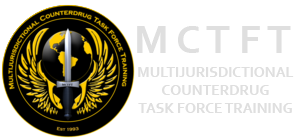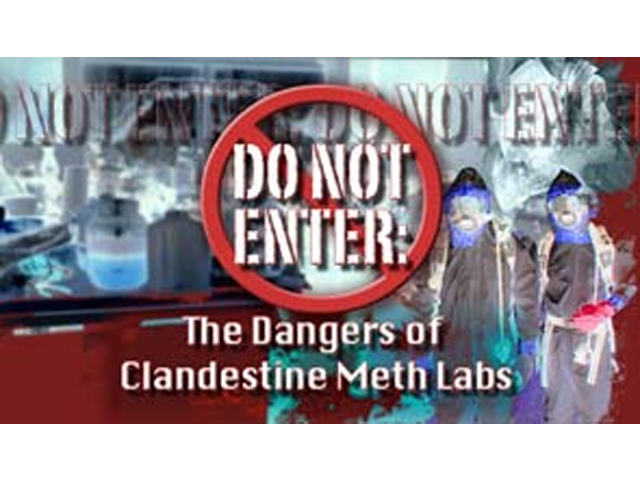During this hour-long broadcast, learn what makes the labs themselves dangerous. See what reacts badly with what and how you can stay safe when you approach a meth lab. Hear first-hand from someone who has long-lasting breathing problems from living close to a lab. Find out what federal regulations are out there that you need to be aware of. See the equipment you should have before going into a meth lab, how it works, and why you should wear it. Also, learn what your department should do to support you and your efforts.
Learning Objectives:
- Find out what really makes meth labs dangerous
- See how to use the safety equipment you need, and why you need it
- Discover how to talk to your departments about what you need and why
- Hear a woman’s story about breathing problems stemming from living near a meth lab
- Learn about the lasting health effects of dealing with meth labs
Originally Aired: February 22, 2007
Panelists
Bruce Liebe
Master Sergeant, Illinois State Police, Clandestine Laboratory Program Coordinator
Liebe began his law enforcement career in 1978 and after serving 4-1/2 years with the LaSalle, IL, Police Department, he joined the Illinois State Police. Liebe has served in patrol, narcotics investigations and on the tactical response team (SWAT). While assigned to state and federal narcotics task forces, his primary duties were clandestine laboratory investigations/dismantling and clandestine laboratory safety and awareness training. He serves as an expert witness in both state and federal court regarding methamphetamine production and distribution. Liebe also serves as adjunct faculty at the University of Illinois, Springfield, in the Criminal Justice Program.
He holds an A.A.S. Degree in Criminal Justice from Illinois Valley Community College, and a Bachelor of Arts Degree in Criminal Justice and Master of Arts Degree in Legal Studies from the University of Illinois. He is also a graduate of the Southern Police Institute, Administrative Officer’s Course with the University of Louisville.
John W. Martyny
Ph.D., Certified Industrial Hygienist, National Jewish Medical and Research Center, Associate Professor in the Division of Environmental and Occupational Health Sciences
Dr. Martyny has been working with law enforcement and emergency services organizations since January 2002 to identify the chemical exposures involved with the investigation of clandestine methamphetamine laboratories. He has conducted controlled “cooks” and simulated methamphetamine “smoking” to determine the exposures involved with these processes and the associated potential health effects. Dr. Martyny and his team have written several reports that are used internationally to inform law enforcement and other personnel about the potential health effects associated with these laboratories as well as how to protect themselves and others from these exposures. Health effects to investigation personnel, medical personnel, the “cookers” themselves and their children have been addressed. Research is also being conducted on the best decontamination methodologies to be used, especially for children associated with these sites. These efforts are being continued with grants and assistance from the United States Department of Justice and COPS.
Dr. Martyny received his doctorate from Colorado State University in 1987. He holds undergraduate degrees from the Ohio State University and from Humboldt State University in Arcata, CA. He holds faculty appointments at the University of Colorado Health Sciences Center and the Colorado State University. He has been involved in many investigations involving indoor air quality, exposure assessment and exposure control and has many publications in this area.
Timyn Rice
Statewide Environmental Forensics Coordinator for the Division of Law Enforcement at the Florida Department of Environmental Protection
Rice is in charge of ensuring that chemical evidence for criminal cases is collected in a safe and legally defensible manner. He is also an Emergency Response Specialist and has responded to clandestine laboratories throughout the state of Florida to assess the chemical hazards. Rice provides OSHA and Hazardous Materials training to emergency responders and law enforcement personnel throughout the state and nation. He has testified as an expert witness in a variety of state and federal environmental crimes cases, and has been recognized by the EPA, FBI, US Department of Justice, and US Coast Guard for his expertise. Rice has a Bachelor of Science degree from Eckerd College and a Master of Public Health degree from the University of South Florida.

